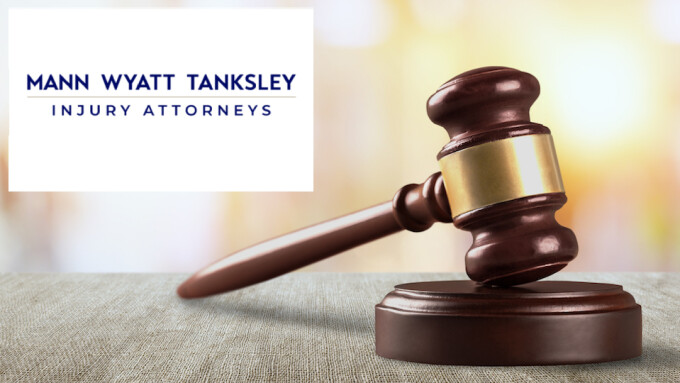HUTCHINSON, Kan. — Kansas-based personal injury law firm Mann Wyatt Tanksley is promoting debunked scientific theories and leveraging religious affiliation against the industry while it seeks potential plaintiffs for lawsuits against adult companies under the state’s age verification law.
As reported by Free Speech Coalition (FSC), the firm has begun sending demand letters to adult websites accessible in the state, seeking damages of nearly $1 million from sites it claims are in violation of Kansas’ age verification law, SB 394.
FSC cautioned in a statement, “In Kansas, simple access of an adult website by a minor may be enough to bring a civil case — no demonstration of actual harm is necessarily required. Under the law, claims for statutory damages begin at $50,000. The state’s attorney general is also empowered to bring litigation.”
After Kansas’ Democratic governor declined to veto the legislation, Mann Wyatt Tanksley began posting anti-adult industry articles on its website. One, titled “Pornography: Its Effects and How Kansas Law Fights Back,” claims that pornography alters brain structure and development, and that watching pornography damages a person’s ability to practice delayed gratification, damaging their chances of future success since “when a person is going through addiction, their ability to control their impulses is weakened.”
As XBIZ has extensively reported, there is no scientific basis for the repeatedly debunked concept of “porn addiction.”
The article also claims that consistently watching pornography changes people’s brains by “shrinking areas responsible for the reward system and weakening its connection to the prefrontal cortex. This means pornography is literally shrinking people’s brains!”
Another article on the firm’s website, “Protecting Kids: Kansas Porn Age Verification Guide,” explicitly instructs parents to weaponize their churches against adult sites.
“We want to get the word out to as many people as possible regarding this Kansas age verification law,” Mann Wyatt Tanksley declares. “People likely won’t wear this case as a badge of honor. It’s a tough situation. We understand this may not be something you want to tell friends and family about. That being said, the best thing to do is to take this before your church family. Gain their support in this matter. Encourage them to take action and spread the word within the church. If anyone involved is holding back from taking action out of fear, consider this: You and your child are not alone. The church is full of families with children who are being affected by pornography. The church is also the most likely to take action of any sort against porn companies.”
FSC Director of Public Policy Mike Stabile noted that these tactics are becoming commonplace across the U.S. among organizations and lawmakers trying to stifle adult content.
“In state after state, we’ve seen anti-porn pseudoscience, unsourced data and faith-based health claims used to bolster legislative and legal attacks against the adult industry,” Stabile said. “We’re witnessing a revival of the old-school morality crusade, cosplayed with a lab coat and legal pad, so it hasn’t been terribly surprising to find churches and religious leaders playing a central role in these campaigns.”






